Artificial Intelligence (AI) is not just something people talk about—its actually being used in real life now. It is even in your phones, your smart TVs, even in your fridge. But I wanted to go a step further. Instead of using AI here and there, I decided to use an AI assistant for 7 full days to handle real tasks in my daily life.
My goal was simple: Can AI really make my life easier?
And the answer surprised me. It did not just helped me in many cases, it actually did things better than I could.
Here’s what I discovered, day by day.
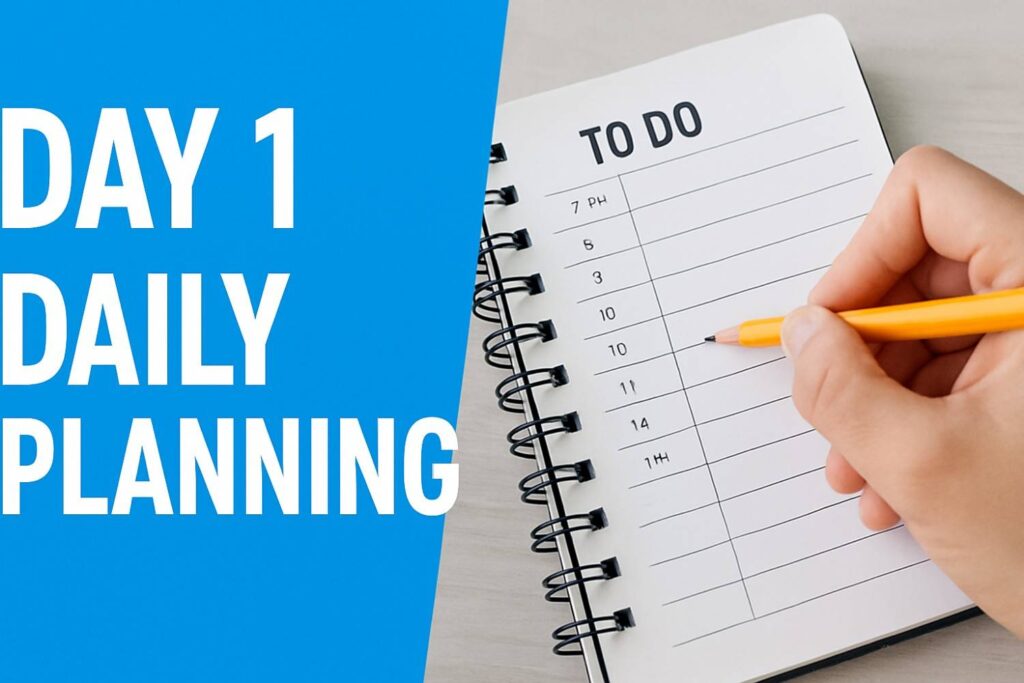
Day 1: Daily Planning
Every morning I usually sit down with a cup of coffee and spend around 15–20 minutes figuring out what I need to do. I open sticky notes, scroll through my phone reminders, and try to make a plan.
But on Day 1, I told the AI assistant (I used ChatGPT) like sending work emails, buying groceries, and calling a friend. In just a few seconds, it made a neat to-do list and showed me what was most important.
What it did better than me:
- It grouped similar tasks (like writing and research) together so I could stay focused.
- It gave me time estimates for each task.
- It reminded me to take short breaks, which I often forget.
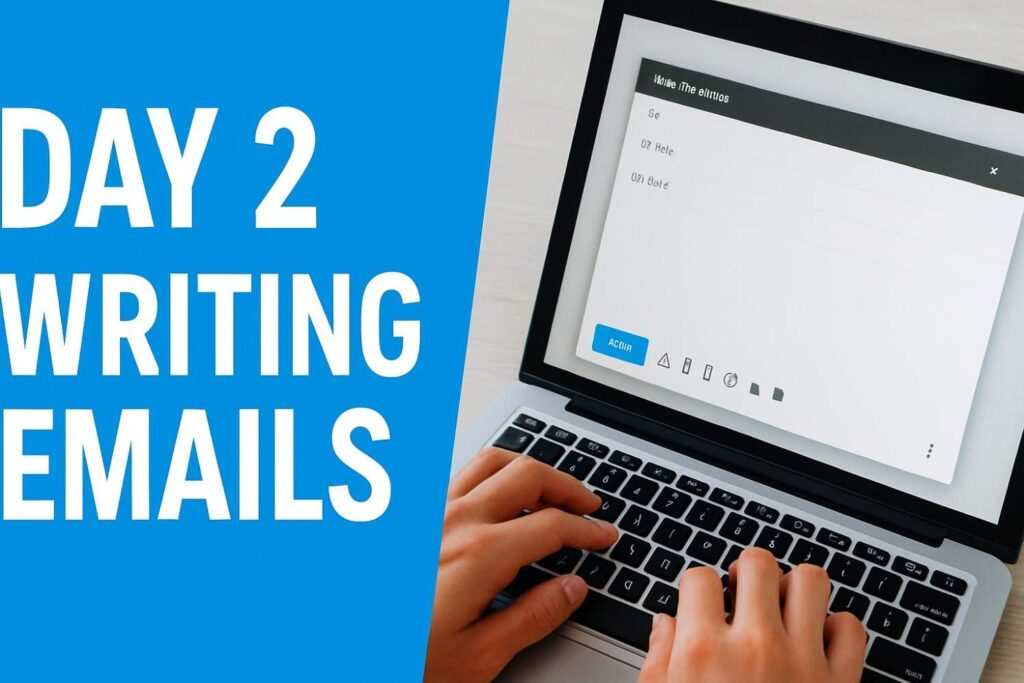
Day 2: Writing Emails
Writing emails each and everyday can feel like a boring especially when you are trying to sound polite and professional. I gave the AI some basic notes like:
“Email boss about Friday,”
“Thank the client,”
or “Ask the store for a refund.”
The AI turned them into full emails that were clear, polite, and to the point.
What it did better than me:
- It used better language than I would have.
- It included little details like subject lines, greetings, and sign-offs.
- It sounded human not robotic, not too formal, just right.
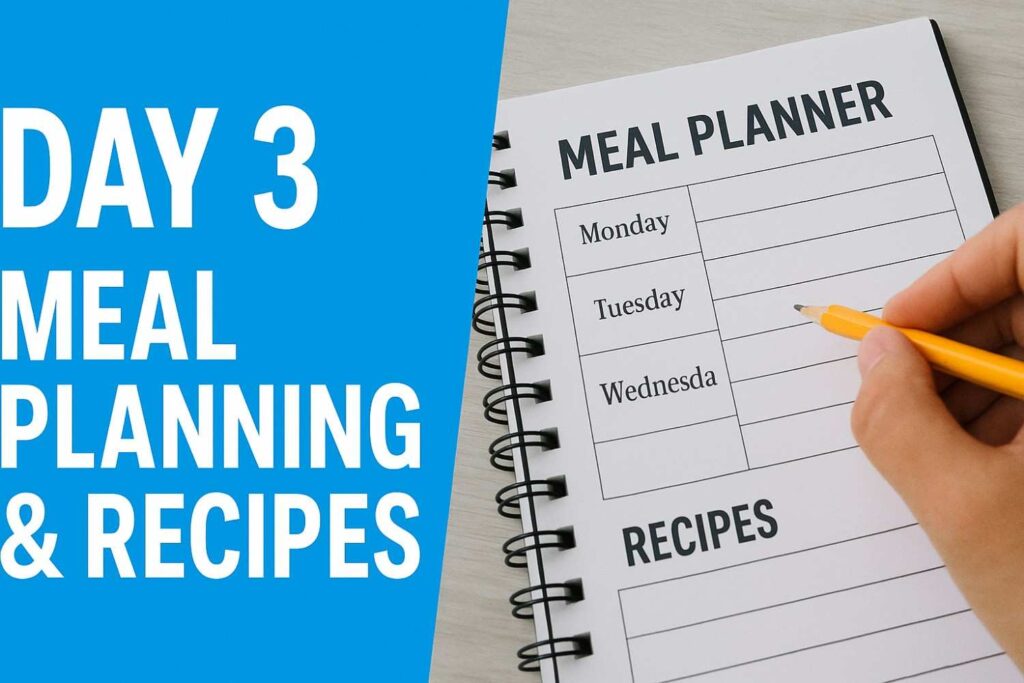
Day 3: Meal Planning & Recipes
I am not great at cooking. Most days, I just look in the fridge and hope I can find something that works. But this time, I told the AI that i had ingredients like (pasta, tomatoes, cheese, some frozen chicken), and asked for a meal plan.
Not only he gave me a recipe but it also made a 5-day meal plan using what I already had — with a short shopping list for extras.
What it did better than me:
- It avoided food waste.
- It planned healthy, simple meals.
- It suggested things I wouldn’t have thought of (like making baked pasta using leftovers).
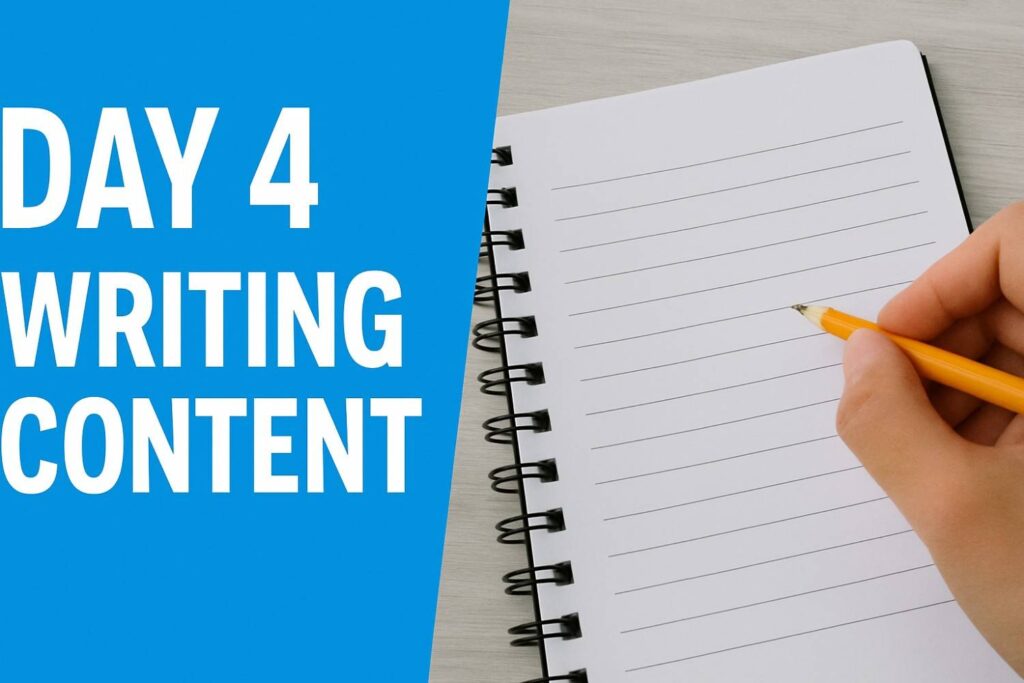
Day 4: Writing Content
As a blogger I sometimes struggle with writing content — especially when I am very tired or short on time. So on Day 4, I asked the AI to help me write some short blog.
I gave it a title, a few key points, and told it what tone I wanted (friendly, simple, helpful). It gave me a draft in under a minute.
What it did better than me:
- It kept the flow smooth and natural.
- It helped avoid writer’s block.
- It saved me Hours of effort.
Of course, I edited the draft later, but the AI saved me 60% of the time I usually spend writing.
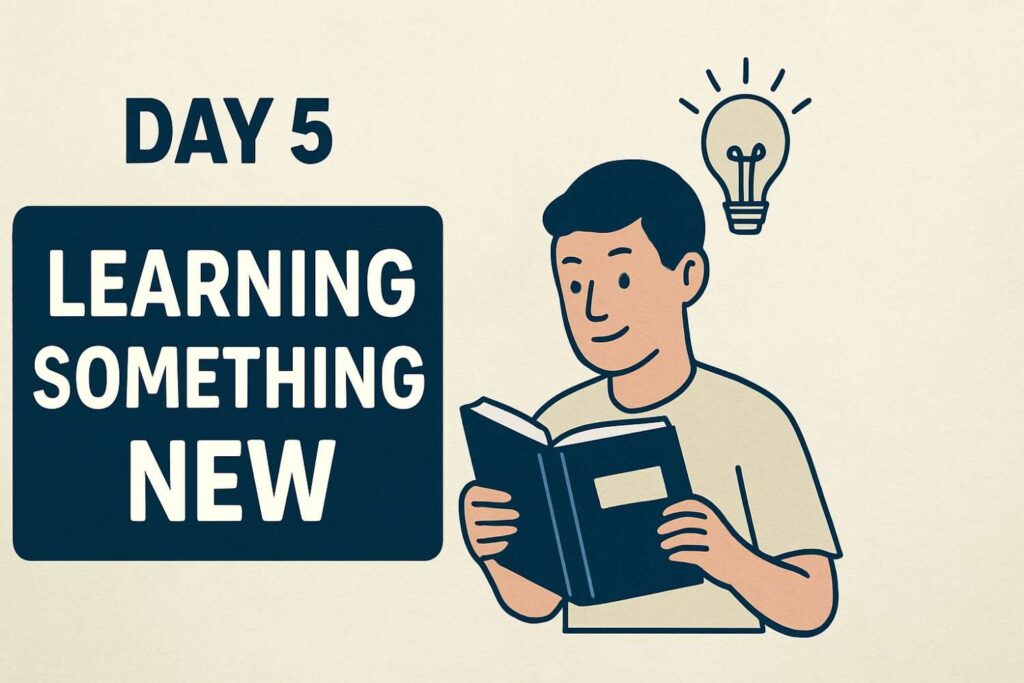
Day 5: Learning Something New
I always wanted to understand topics like blockchain and quantum computing, but they sound super complex. I asked the AI to explain them to me “like I’m 12.”
And you know what? It did.
It broke down hard topics into simple, everyday language and i got it with no confusion.
What it did better than me:
- It taught with examples, like comparing blockchain to a notebook that everyone shares.
- It didn’t assume I knew anything.
- It made learning fun.
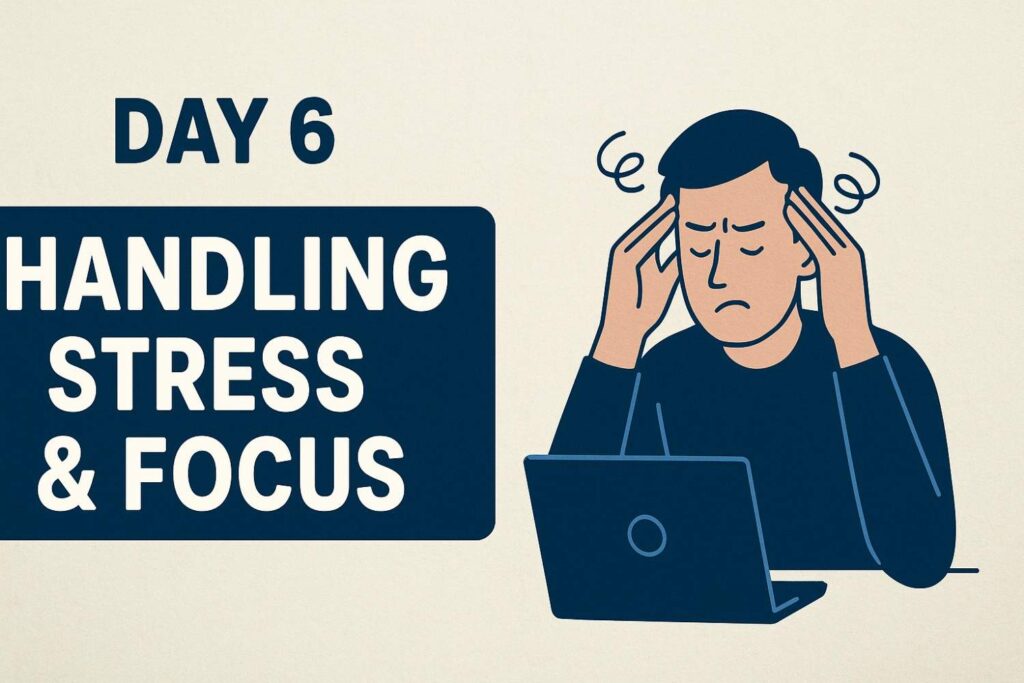
Day 6: Handling Stress & Focus
I was feeling too much stressed on Day 6. I had too many things in my mind and couldn’t focus. I asked the AI what to do.
It guided me through a quick breathing exercise, gave tips for improving focus, and even suggested a short 10-minute break with relaxing music.
What it did better than me:
- It reminded me that mental health matters.
- It responded instantly, like a 24/7 support buddy.
- It offered practical steps instead of just saying “relax.”
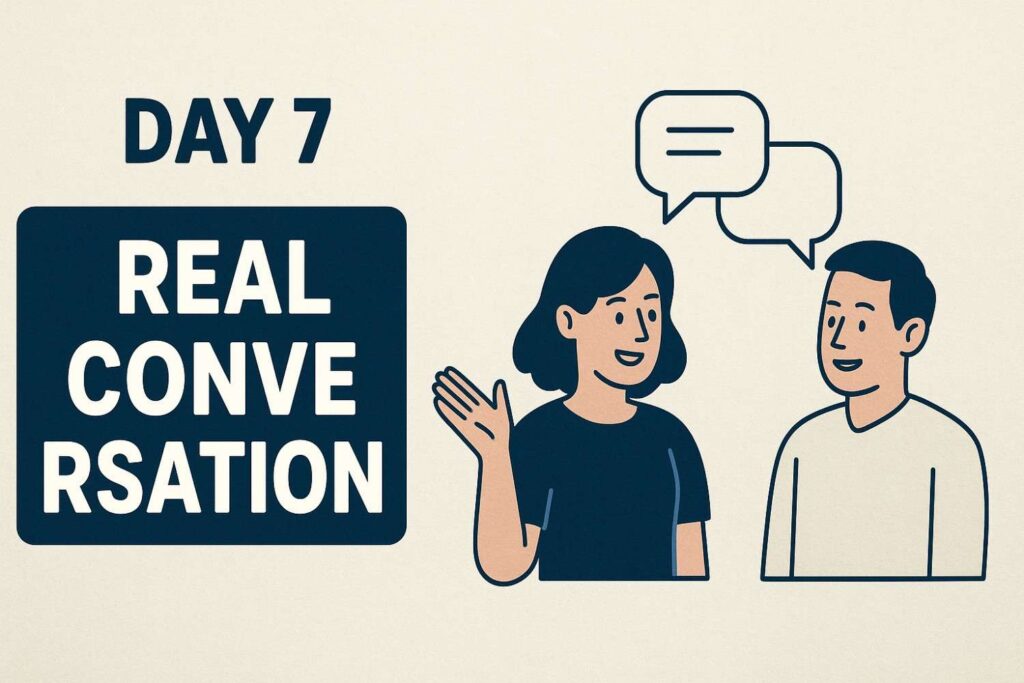
Day 7: Real Conversations
On the last day, I didn’t have many tasks. So I just chatted with the AI — about my life, the future, my ideas, even some personal worries. It replied with thoughtful answers, asked follow-up questions, and gave advice without being pushy.
What it did better than me:
- It listened. For real.
- It was kind and neutral.
- It helped me reflect on things I had not even considered.
✅ Final Thoughts: What AI Can (and Can’t) Do
After 7 days, here is what I learned:
What it does better than me:
- Organizing tasks
- Writing emails or content
- Meal and time planning
- Explaining complex topics
- Staying calm and focused
- Being consistent and fast
What it can’t do (yet):
- Feel emotions or understand tone deeply
- Replace human judgment in sensitive situations
- Think creatively in the same way a person can
- Make physical actions or choices for you
So Should You Use an AI Assistant?
Absolutely. If you are a student, worker, creator, or just someone trying to manage your day better, AI is a powerful tool. Its like having a super-organized friend that never sleeps, never forgets, and always helps.
Frequently Asked Questions (FAQs)
1. Can an AI assistant really help in daily life?
Yes an AI assistant like ChatGPT or Google Assistant can help you planning your day, writing emails, learning new things, and even managing stress. Its like having a smart digital helper available 24/7.
2. What kind of tasks can AI do better than humans?
AI can handle tasks that require speed, organization, and memory—like scheduling, summarizing, or drafting text. However, it can not fully replace human creativity or emotional understanding.
3. Is it safe to rely on AI for personal tasks?
Yes as long as you use trusted AI tools and dont share your personal information. AI assistants work best as support tools—not for storing passwords or private data.
4. Can AI help improve productivity or time management?
Yes, AI is great at creating task lists, setting reminders, and helping you focus. Many people find they get more done with AI’s help.
✉️ If you have any questions or thoughts, feel free to leave a comment or contact me at rizwanshahid785@gmail.com
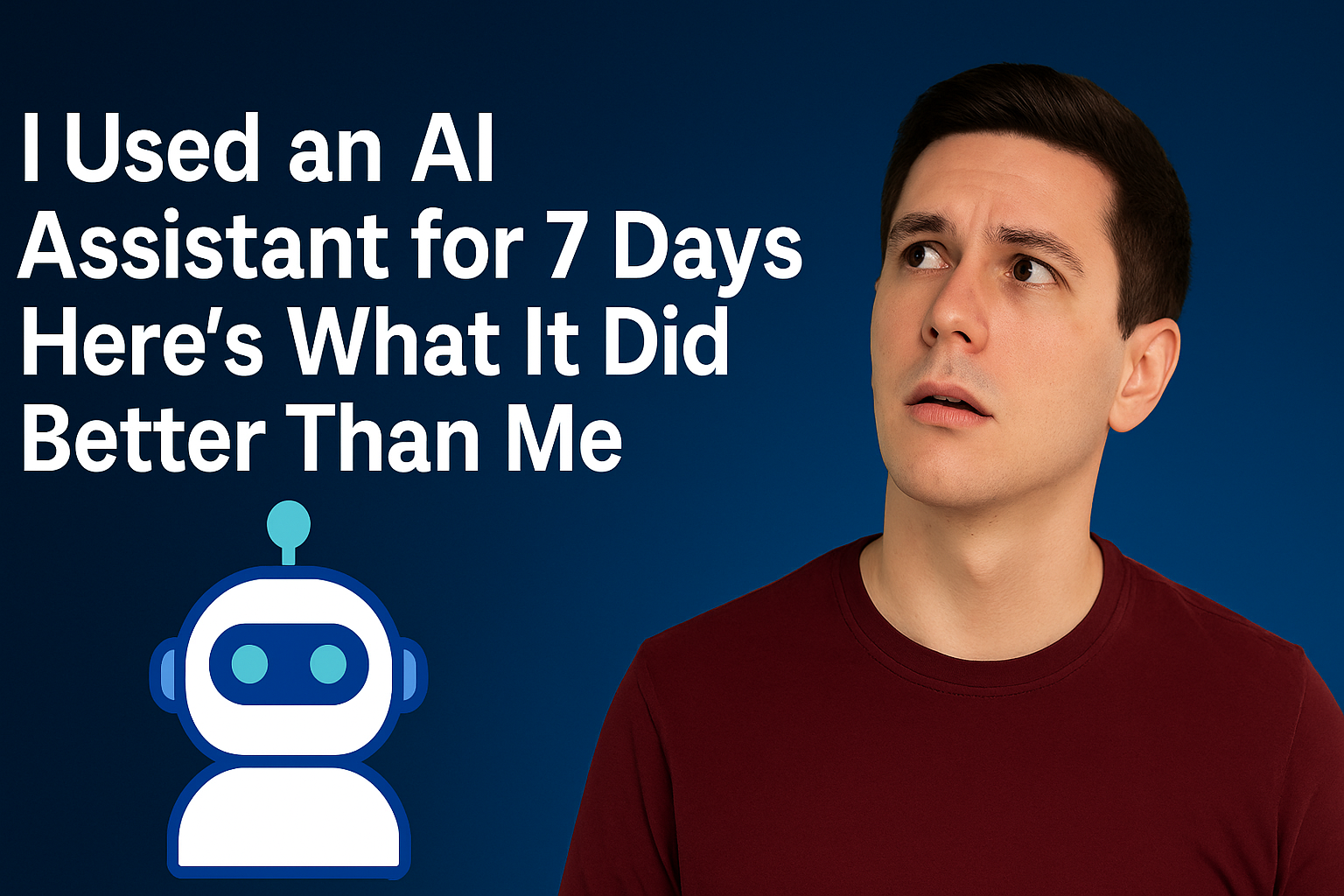
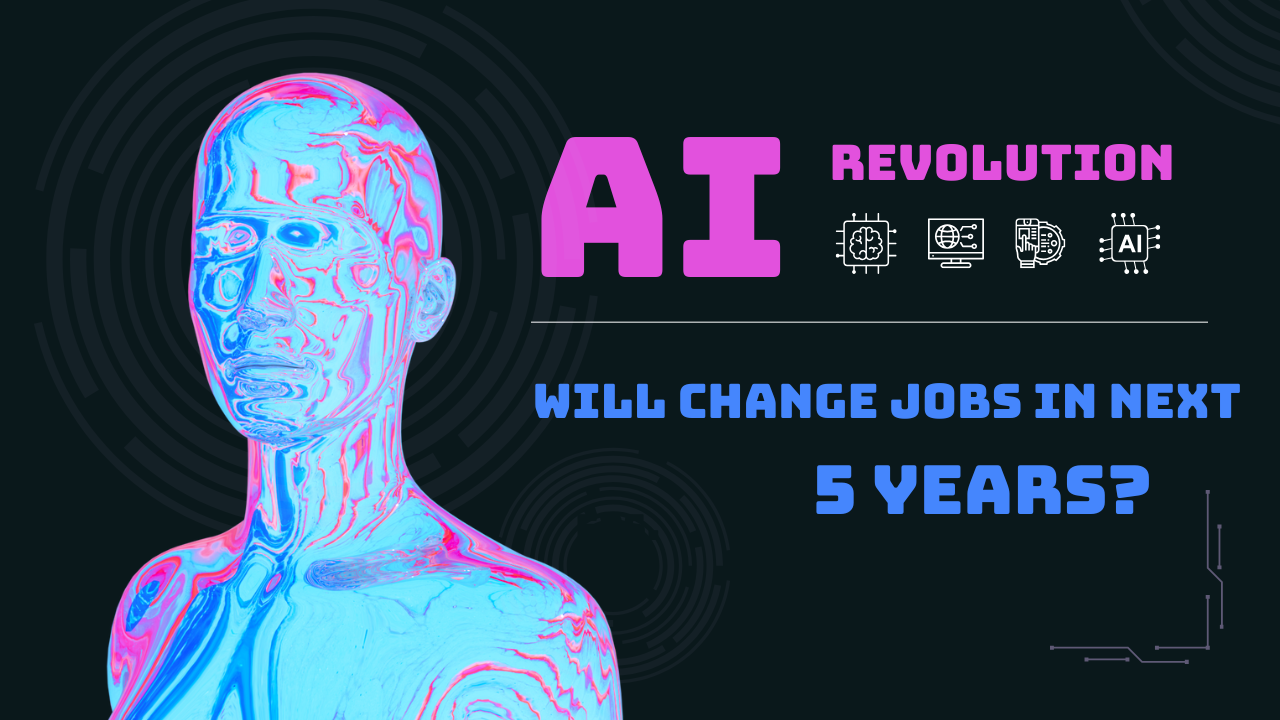

interesting blog keep uploading blog like this i loved this blog
Attractive section of content. I simply stumbled upon your website and in accession capital to say that I get actually loved account your blog posts. Anyway I’ll be subscribing in your feeds and even I achievement you get right of entry to constantly rapidly.
This blog is definitely rather handy since I’m at the moment creating an internet floral website – although I am only starting out therefore it’s really fairly small, nothing like this site. Can link to a few of the posts here as they are quite. Thanks much. Zoey Olsen
hello there and thank you for your info – I have certainly picked up something new from right here. I did however expertise some technical points using this site, as I experienced to reload the web site many times previous to I could get it to load properly. I had been wondering if your web hosting is OK? Not that I’m complaining, but slow loading instances times will sometimes affect your placement in google and can damage your quality score if ads and marketing with Adwords. Anyway I’m adding this RSS to my e-mail and can look out for a lot more of your respective exciting content. Ensure that you update this again soon..
Just want to say your article is as surprising. The clarity for your post is simply great and that i can suppose you’re an expert in this subject. Fine along with your permission let me to snatch your RSS feed to stay up to date with forthcoming post. Thanks a million and please carry on the rewarding work.
Some genuinely nice stuff on this internet site, I love it.
Appreciating the dedication you put into your site and in depth information you present. It’s awesome to come across a blog every once in a while that isn’t the same old rehashed material. Wonderful read! I’ve bookmarked your site and I’m including your RSS feeds to my Google account.
Just wanna remark on few general things, The website style is perfect, the subject material is very superb. “All movements go too far.” by Bertrand Russell.
Very interesting subject, regards for putting up.
I am happy that I found this site, precisely the right info that I was looking for! .
Nice post. I was checking continuously this blog and I’m impressed! Extremely useful information particularly the last part 🙂 I care for such info a lot. I was looking for this particular info for a very long time. Thank you and good luck.
What i don’t realize is actually how you are not actually much more well-liked than you might be right now. You are so intelligent. You realize therefore considerably relating to this subject, made me personally consider it from so many varied angles. Its like women and men aren’t fascinated unless it’s one thing to accomplish with Lady gaga! Your own stuffs nice. Always maintain it up!
What i do not realize is in reality how you are now not really a lot more neatly-liked than you may be right now. You’re so intelligent. You know thus considerably when it comes to this subject, produced me in my view believe it from a lot of various angles. Its like men and women aren’t involved until it is one thing to accomplish with Lady gaga! Your personal stuffs nice. At all times deal with it up!
Linkvaofthabetjohn, cool link! Gotta find the right entrance to get in on those sweet winnings. Straight to the action with linkvaofthabetjohn!
Wow! Thank you! I continually wanted to write on my site something like that. Can I implement a part of your post to my site?
I am loving this 5ubetapp! Very convenient to use on the go. The mobile app is smooth and reliable. Give the 5ubetapp a download!
I like this website very much, Its a very nice spot to read and obtain information. “What happens to the hole when the cheese is gone” by Bertolt Brecht.
There is noticeably a lot to realize about this. I assume you made some good points in features also.
**mitolyn**
Mitolyn is a carefully developed, plant-based formula created to help support metabolic efficiency and encourage healthy, lasting weight management.
hello there and thank you for your information – I have definitely picked up anything new from right here. I did however expertise several technical points using this website, as I experienced to reload the site many times previous to I could get it to load properly. I had been wondering if your web hosting is OK? Not that I am complaining, but sluggish loading instances times will often affect your placement in google and can damage your high-quality score if advertising and marketing with Adwords. Anyway I’m adding this RSS to my email and can look out for much more of your respective interesting content. Make sure you update this again very soon..
**prostafense official**
ProstAfense is a premium, doctor-crafted supplement formulated to maintain optimal prostate function, enhance urinary performance, and support overall male wellness.
**prodentim official website**
ProDentim is a distinctive oral-care formula that pairs targeted probiotics with plant-based ingredients to encourage strong teeth, comfortable gums, and reliably fresh breath
**aqua sculpt**
aquasculpt is a premium metabolism-support supplement thoughtfully developed to help promote efficient fat utilization and steadier daily energy.
**men balance**
MEN Balance Pro is a high-quality dietary supplement developed with research-informed support to help men maintain healthy prostate function.
**back biome official**
Mitolyn is a carefully developed, plant-based formula created to help support metabolic efficiency and encourage healthy, lasting weight management.